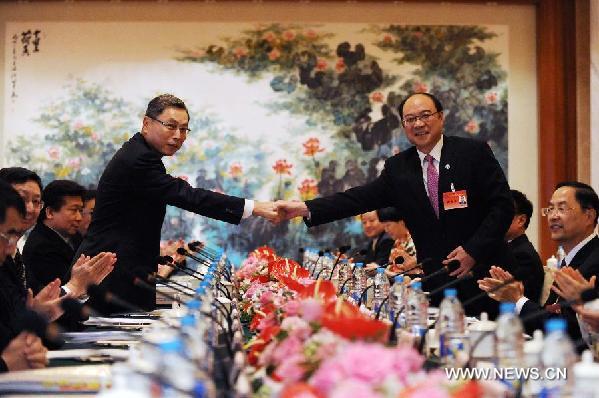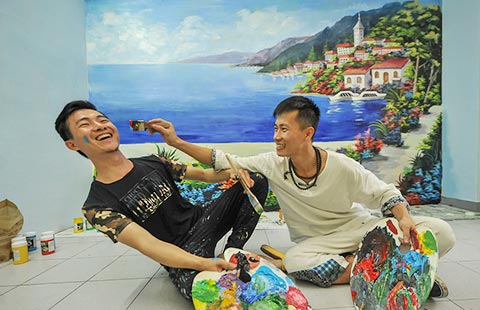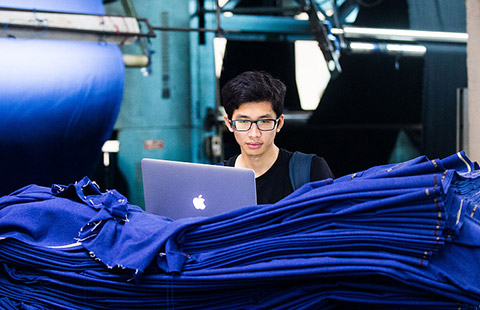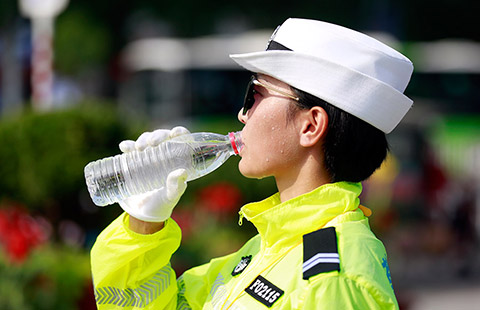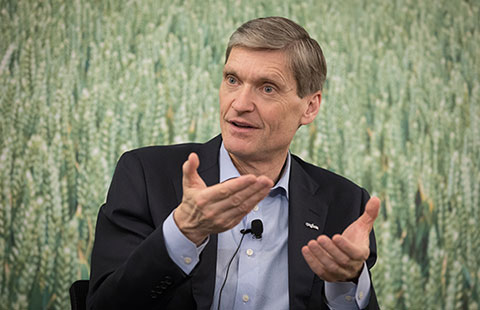Negotiators optimistic on cross-Straits service trade pact
SHANGHAI -- Negotiators from the Chinese mainland and Taiwan on Thursday spoke highly of the prospects of a service trade agreement in strengthening cross-Straits economic ties and boosting the two sides' respective competitiveness in the service industry.
Both Zheng Lizhong, a senior negotiator from the Chinese mainland and his Taiwanese counterpart, Kao Koong-lian, underlined the significance of the pact as they co-chaired a consultation in Shanghai.
The consultation was held in preparation for final talks and a signing ceremony of the pact that will be attended by their respective superiors on Friday.
Zheng, executive vice president of the mainland-based Association for Relations Across the Taiwan Straits (ARATS), said the agreement will further liberalize and facilitate service trade between the two sides across the Strait.
"The signing of the service trade agreement will be a new achievement under the Economic Cooperation Framework Agreement (ECFA) and compatriots on both sides of the Taiwan Strait are expected to share more bonuses in peacefully developing cross-Strait relations," he said.
Kao, vice chairman of the Taiwan-based Straits Exchange Foundation (SEF), believes both the mainland and Taiwan can make their respective advantages complementary to each other through increased economic and trade cooperation.
Both sides across the Taiwan Strait can raise their competitiveness together and achieve a win-win result through closer economic and trade ties, he said.
The service trade agreement is one of the follow-up deals for a wide-ranging cross-Strait economic pact signed in 2010. The ECFA, containing a number of programs and agreements, some of them still under negotiation, aims to reduce tariffs and commercial barriers between the Chinese mainland and Taiwan.
According to Zheng, the mainland has tried to consider the needs of Taiwan and made reasonable arrangements under the principle of mutual understanding and benefit during preliminary negotiations on the service trade agreement.
Zheng also praised the "important endeavors to increase mutual political trust by the two sides across the Taiwan Strait not long ago," saying it has laid a solid groundwork for the talks between the ARATS and SEF.
These talks are people-oriented and have won popular support from the public on both sides of the Taiwan Strait, the senior negotiator said.
Founded in 1991 and 1990, respectively, the ARATS and SEF are authorized by the mainland and Taiwan to handle cross-Strait affairs.
Friday's talks will be the first of their kind since the two sides' newly-elected leaders took office. Chen Deming became ARATS president in April 2013, while Lin Join-sane was elected the SEF's chairman in September 2012.
Friday will also mark the ninth round of talks between the two sides since the SEF and ARATS resumed talks in June 2008 after a nine-year suspension.
By replacing confrontation with negotiation in developing cross-Strait relations, the Chinese mainland and Taiwan have set an example in world history and won recognition from the international community, Kao said.
Economic and trade cooperation not only conforms to the needs of developing cross-Strait relations, but also creates common benefits for people on both sides, he added.




